Global harmony finds a home in Karachi
Arts Council's World Culture Festival to gather 1,000 international artists
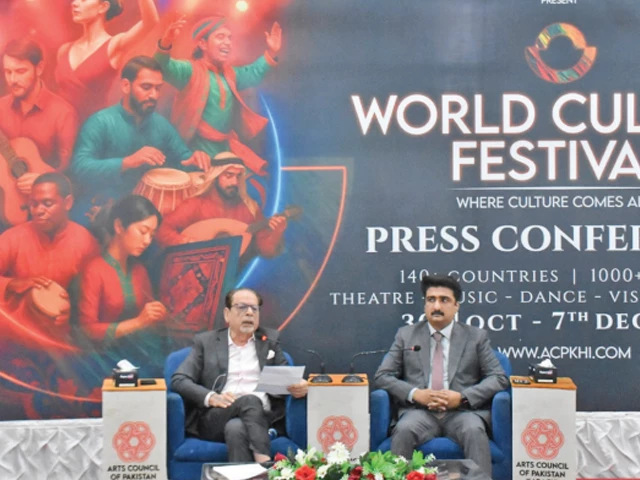
Karachi is set to transform into a global cultural capital at the month's end as more than 141 countries gather under one roof for the 'World Culture Festival 2025' - a 39-day celebration of art, dialogue, diplomacy, and global unity in diversity.
The mega event, dubbed by the organisers - the Arts Council of Pakistan (ACP), Karachi - as the world's biggest cultural meet, aims to showcase Pakistan's soft power through a sweeping range of performances across music, theatre, dance, film, and fine arts.
Running from October 30 to December 7 at the ACP, the festival will bring together over 1,000 performers, including 500 Pakistani artists, from 141 countries - 37 African, 41 Asian, 36 European, 11 South American, 13 North American, and three Oceanian nations.
"It is a great honour for us that artists from such diverse countries, such as Asia, Africa, North and South America, have confirmed their participation," said ACP President Ahmad Shah at a pre-festival press conference at the ACP's Hasina Moin Hall.
"I want to show the world that we are a people of peace and creativity," he said. "This festival is not just a celebration of art - it is our way of connecting with the world when diplomacy is too slow or too cautious to act."
Shah described the festival as a bold cultural statement for Pakistan's image abroad. "Our focus is peace and global connectivity," he said. "Through cultural activism, we aim to revive and sustain these values in a world torn apart by division and indifference."
Under the theme 'Global Connectivity for Peace and Environment', the festival will feature 45 theatre plays, 60 music performances, 25 dance showcases, six exhibitions, and 25 workshops and talks.
According to Shah, the vision for this year's event was shaped by the turbulent realities of the present decade - from Gaza's destruction to the mounting climate crisis. For that reason, 15 talks will focus on issues such as the climate, global conflicts, and the humanitarian catastrophe in Gaza.
So far, more than 2,800 films have been submitted to the festival, setting a record for participation. Among them were entries from Indian and Israeli filmmakers, some of which, Shah noted, carried political criticism of their own governments.
"We may screen some of them privately later," Shah explained, "but it is our policy not to publicly feature works from countries engaged in genocide, even if their artists are not complicit," he said, adding: "The world is changing, and art can push that change forward."
The festival promises to be more than a series of performances - rather a statement of intent. "We are doing what foreign ministries should ideally be doing," he said. "We are bringing together people, hosting them, and showing them that Pakistan is a peace-loving, creative nation."
He hailed Pakistan's shifting global image and regional importance. "Pakistan has demonstrated its resilience and new role in the region," he said. "It is the largest festival of its kind in the world. Karachi is fast becoming the nucleus of world culture."
Acknowledging the Sindh government's support for the festival, Shah appreciated the role of the provincial Minister for Culture, Syed Zulfiqar Shah.
For his part, the minister, who also attended the press conference, called the festival "a triumph of cultural diplomacy." He said the government saw culture as an essential tool of soft power. "Culture is something you can display to others, and it gives visitors an opportunity to see what our people and our land are really like."
The minister confirmed that international visitors would also be taken on tours of Sindh's heritage landmarks, including Quaid-e-Azam's Mazar, Mohatta Palace, Frere Hall, Keenjhar Lake, and Makli Necropolis, as part of the festival's cultural immersion programme.
"Art and culture are what connect people," he said. "We will take visiting artists to these heritage sites to show them that Pakistan is a peace-loving country, not a terrorist one." He added that the government would ensure a safe and welcoming environment for international guests.
The chief minister, he added, was personally overseeing security and logistics for the event. "We will not let violent elements disrupt Karachi's peace and vibrancy," Ahmad Shah reiterated. "Those who try to disturb peace must face action."
Reflecting on Karachi's resilience as a cultural hub, Ahmad Shah said, "This city's energy is unmatched. We want to live happily and celebrate life through art. Karachi belongs to peace, not fear." His views were echoed by the minister.
"The festival, with its inclusive spirit, will further the mission of cultural diplomacy. Art and culture unite people and end hatred," he said. "Such festivals project the positive face of Pakistan to the world."
The festival's line-up includes several of Pakistan's most acclaimed artists, including Rahat Fateh Ali Khan, Mai Dhai, Sanam Marvi, Akbar Khameso Khan, and Akhtar Chanal, alongside international performers from Syria, Iraq, Iran, Palestine, Egypt, Italy, Bangladesh, Saudi Arabia, the United States, Canada, France, Germany, Malaysia, Indonesia, Afghanistan, Japan, China, and many more.
In addition to concerts and theatrical productions, the festival will also feature the Images Festival, daily film screenings, a climate change awareness workshop, and discussions with filmmakers and environmental activists.
As Karachi prepares for the opening ceremony on October 30, the World Culture Festival 2025 stands poised to become not just a showcase of art and performance but a living dialogue between nations - proof that creativity, empathy, and unity remain Pakistan's strongest ambassadors to the world.


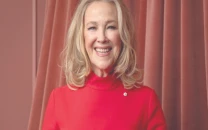


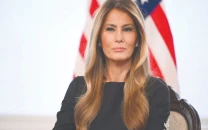
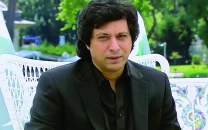
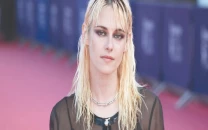
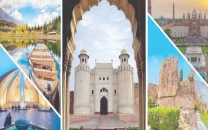












COMMENTS
Comments are moderated and generally will be posted if they are on-topic and not abusive.
For more information, please see our Comments FAQ